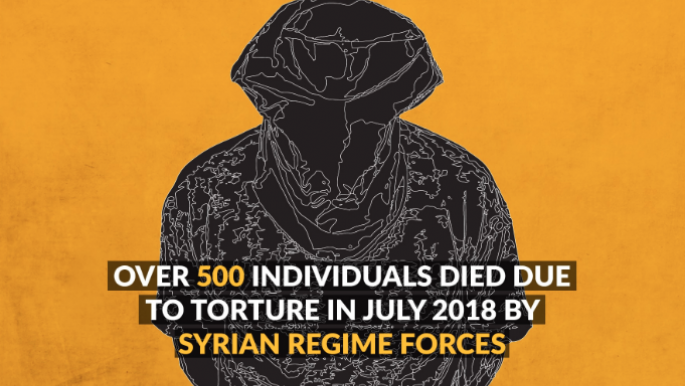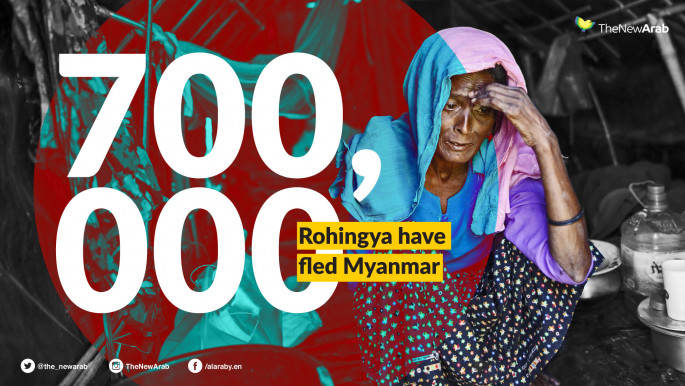Follow us on Twitter and Instagram to stay connected
UN designates 2020 funds for war crimes probes in Syria, Myanmar
The budget represents a slight increase from 2019's figure of $2.9 billion.
The increase is due to additional missions assigned to the UN Secretariat, inflation and exchange rate adjustments, according to diplomats.
These include the observer mission in Yemen, a political mission established in Haiti, the investigation of crimes committed in Syria since the outbreak of civil war in 2011, and in Myanmar after the 2017 crackdown on the Rohingya Muslim minority.
For the first time, the budgets for the Syria and Myanmar investigations - which were previously financed by voluntary contributions - will in 2020 be transferred to the UN secretariat's budget and will receive compulsory contributions from the 193 member states.
Russia proposed multiple amendments during negotiations in the Committee on Budgetary Questions meeting and in the General Assembly plenary session.
At each vote, Russia, Syria, Myanmar and their supporters, including North Korea, Iran, Nicaragua and Venezuela, were outvoted. They all stated that they dissociated themselves from references to investigative mechanisms in the adopted resolutions.
Russia said it would examine its future obligatory payments in light of the vote outcome and predicted an increase in the arrears that currently plague the UN's treasury due to countries not paying enough.
 |
|
| [Statistics from July 2018] |
Moscow argued on Friday the investigative mechanism was illegitimate, while Damascus stressed that it had no mandate from the Security Council. Russia is a close ally to the Syrian regime.
The UN's operating budget is separate from the annual budget for peacekeeping operations of some $6 billion that is adopted in June.
Syria war crimes
The US passed landmark legislation in Congress last week, sanctioning Bashar Al-Assad, Russia and Iran for war crimes in Syria.
The Caesar Syria Civilian Protection Act of 2019 authorises the use of sanctions on Syrian regime officials, as well as military and government leaders thought to be responsible for the horrendous war crimes committed against civilians in the country.
| Read more: Assad officials begin trial in Germany, but in Syria regime abuses prevail |
The bill could provide support for Syrian victims and put economic and political pressure on the Assad regime.
It also has bipartisan support calls for accountability and justice for the hundreds of thousands of victims of the regime.
The Russian military, mercenaries operating in the war-torn country, energy companies looking to profit from Syrian oil businesses and Iranian paramilitary forces helping Assad may also be the recipient of sanctions.
Myanmar's Rohingya Muslims
Earlier this month, Aung San Suu Kyi attended the UN's International Court of Justice in the Hague to defend Myanmar over accusations of genocide against its minority Muslim Rohingya population.
The case, which has been brought to the ICJ by the African nation of The Gambia, comes after thousands of Rohingya were killed and some 700,000 fled to neighbouring Bangladesh during a brutal military crackdown in the Buddhist-majority country in 2017.
Suu Kyi, who was once awarded the Nobel Peace Prize, told the United Nation's top court there was no proof of "genocidal intent" behind her country's military campaign against Rohingya Muslims.
| Read more: Rohingya leaders condemn 'liar' Aung San Suu Kyi after she denies Myanmar genocide |
She told the court that the mass exodus of over one third of the Rohingya community to neighboring Bangladesh was not the result of a systematic purge but rather the unfortunate result of a battle with insurgents.
"The world will judge their claim of no genocide with evidence," he said.
 |





 Follow the Middle East's top stories in English at The New Arab on Google News
Follow the Middle East's top stories in English at The New Arab on Google News
![The UAE is widely suspected of arming the RSF militia [Getty]](/sites/default/files/styles/image_330x185/public/2024-11/GettyImages-472529908.jpg?h=69f2b9d0&itok=Yauw3YTG)
![Netanyahu furiously denounced the ICC [Getty]](/sites/default/files/styles/image_330x185/public/2024-11/GettyImages-2169352575.jpg?h=199d8c1f&itok=-vRiruf5)
![Both Hamas and the Palestinian Authority welcomed the ICC arrest warrants [Getty]](/sites/default/files/styles/image_330x185/public/2024-11/GettyImages-2178351173.jpg?h=199d8c1f&itok=TV858iVg)